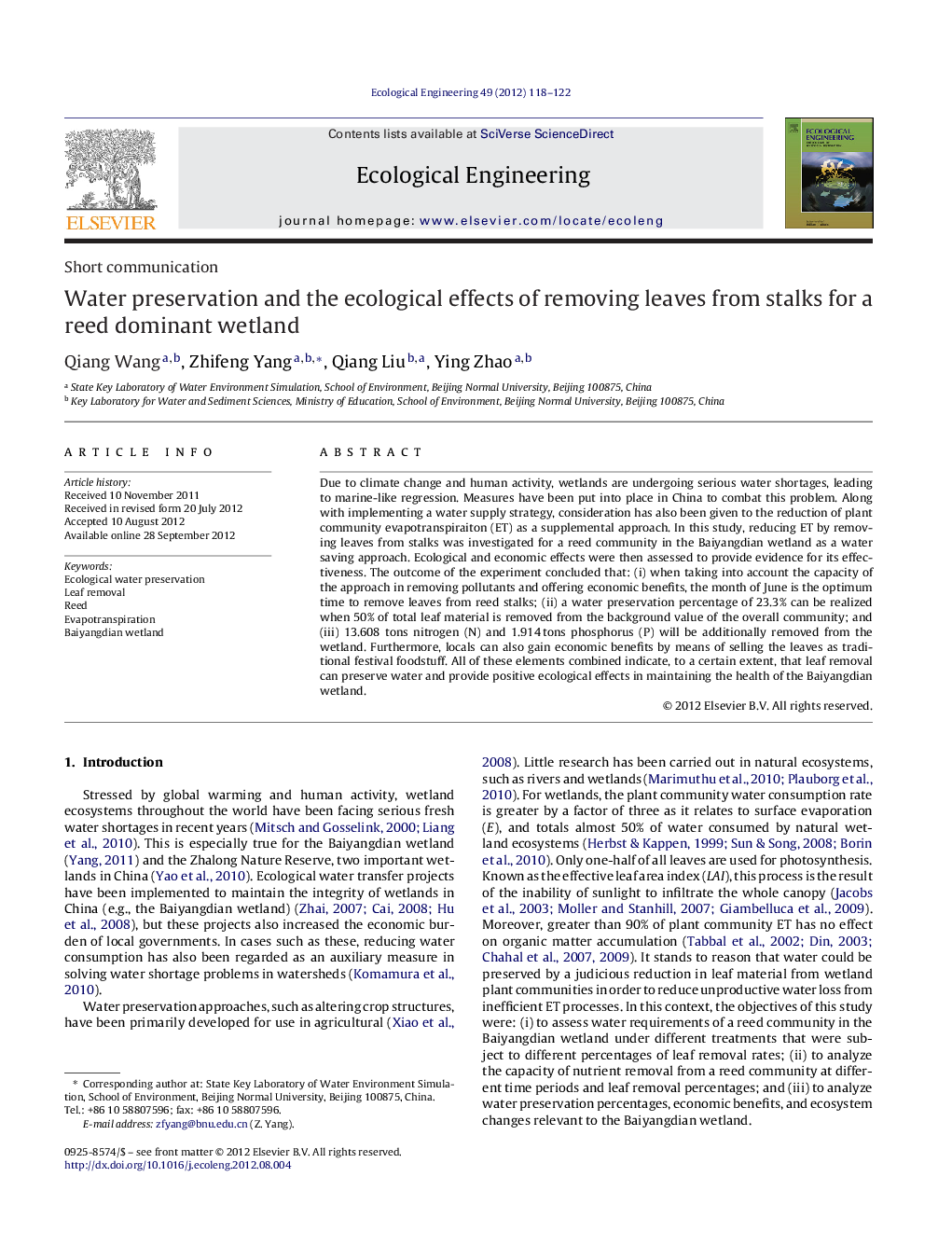| Article ID | Journal | Published Year | Pages | File Type |
|---|---|---|---|---|
| 4389893 | Ecological Engineering | 2012 | 5 Pages |
Due to climate change and human activity, wetlands are undergoing serious water shortages, leading to marine-like regression. Measures have been put into place in China to combat this problem. Along with implementing a water supply strategy, consideration has also been given to the reduction of plant community evapotranspiraiton (ET) as a supplemental approach. In this study, reducing ET by removing leaves from stalks was investigated for a reed community in the Baiyangdian wetland as a water saving approach. Ecological and economic effects were then assessed to provide evidence for its effectiveness. The outcome of the experiment concluded that: (i) when taking into account the capacity of the approach in removing pollutants and offering economic benefits, the month of June is the optimum time to remove leaves from reed stalks; (ii) a water preservation percentage of 23.3% can be realized when 50% of total leaf material is removed from the background value of the overall community; and (iii) 13.608 tons nitrogen (N) and 1.914 tons phosphorus (P) will be additionally removed from the wetland. Furthermore, locals can also gain economic benefits by means of selling the leaves as traditional festival foodstuff. All of these elements combined indicate, to a certain extent, that leaf removal can preserve water and provide positive ecological effects in maintaining the health of the Baiyangdian wetland.
